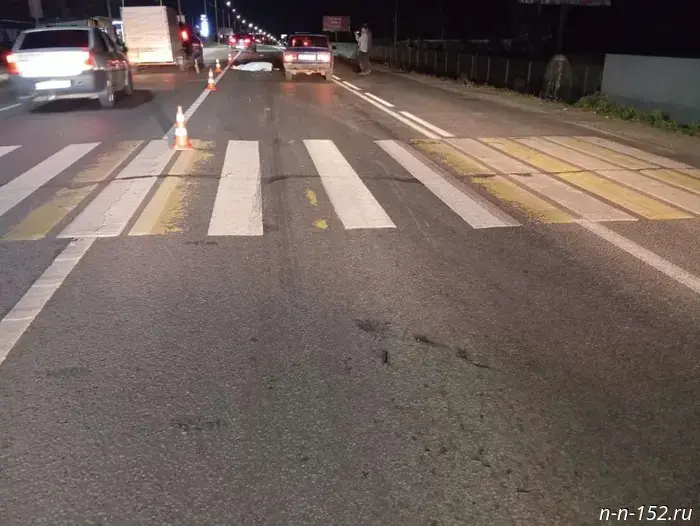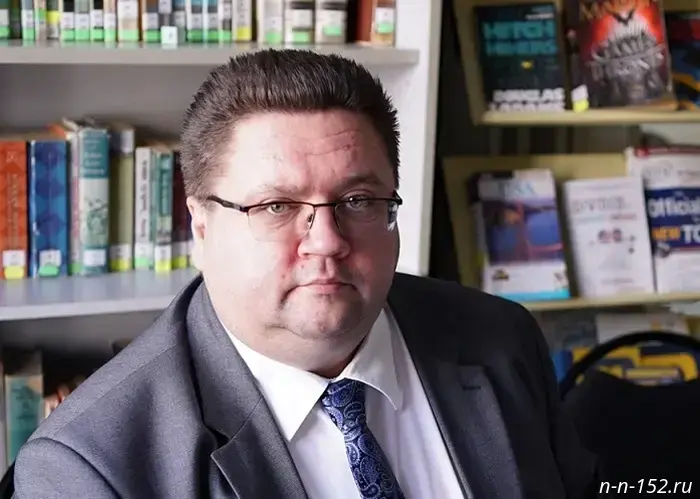
Experts explained why a commission to protect teachers is needed in the Nizhny Novgorod region.
September 25, 2025 13:10 Society: In the Nizhny Novgorod Region a Commission for the Protection of the Honor and Dignity of Teachers is being created. It is intended to regulate disputes between teachers, children and their parents, as well as to consider labor disputes. The head of the commission will be the deputy minister of education and science of the region; members of the commission will include representatives of the state labor inspectorate and the trade union of education workers. The draft law on this commission has been published on the website of the government of the Nizhny Novgorod Region and is undergoing public discussion.
We invited experts to join the discussion by answering the questions: what justifies the need to create such a commission and how its work will affect school life and work.
Andrey Chugunov, journalist:
"The first reports about the creation of a similar commission at the federal level appeared at the end of August. And already on September 16 the website of the Russian government reported that the commission had been created. There are no such commissions in the regions yet. Although programs to protect teachers' rights were previously introduced in Tatarstan and the Krasnodar Territory, little is known about the results of their work. The commission being created is unlikely to become a panacea, but it may turn out to be the first step toward systemic protection of teachers. But without a change in society's attitude toward the teaching profession, which was once highly respected, the problem of bullying will remain relevant for a long time."
Andrey Samsonov, research fellow at the Privolzhsky Branch of the Federal Research Center of the Russian Academy of Sciences, senior research fellow at the ANO "Scientific Research Institute for Problems of Social Governance":
"Any system in its development oscillates between extremes, and the school education system is no exception. Relatively recently, in historical terms, having emerged, it remained for quite a long time within the paradigm that 'the teacher is always right,' discipline first and foremost, and parents have no influence on the educational (and upbringing) process. That was the 'extreme' familiar to most who studied or worked in the education system in the 1980s–early 1990s. In the modern school another extreme has triumphed. The system—and the teacher as its main part—found themselves in the position of 'service providers of an educational service,' albeit not under market conditions, but in market-minded terms and coordinates: 'the customer is always right' and the like. As a result, teachers have become completely powerless before parents and students, deprived of authority and of many former tools for maintaining discipline."
Evgeny Semenov, deputy chair of the Public Chamber of the Nizhny Novgorod Region, head of the Nizhny Novgorod branch of FoRGO, political scientist, Candidate of Political Sciences, associate professor:
"There is always a conventional recognition of conflict in ombudsmanship. But the institution of ombudsmen (whatever it is called – commission, committee, council) focuses on consequences; it does not deal with eliminating causes. The elimination of the cause of the 'teacher–children–parents' conflict should be approached technologically. There is an assumption that the introduction of AI technologies into the education system will lead to improved education quality, reduced influence of the human factor and increased social status of the teacher. AI will be able to analyze the data of each student: pace of material acquisition, knowledge gaps, neurotype. To generate individual trajectories: selection of tasks, difficulty levels, formats (video/text/games), as the AltSchool platform (USA) does. AI will automate 80% of routine tasks: grading tests, timetabling, reports and personal recommendations for parents. AI will generate non-standard tasks and assess the logic of solutions, not just the correctness of an answer, as Gradescope at Stanford does. Together they will create a system where every child will receive both unlimited access to information and what cannot be digitized — belief in themselves, support and human warmth."
Elena Mozgunova, historian, Candidate of Political Sciences, associate professor at the Nizhny Novgorod Institute of Management — a branch of RANEPA:
"It should be acknowledged that the number of conflict situations in the modern school is multiplying. A separate topic is the causes of disagreements: pressure from parents, overly free and uninhibited behavior of children who do not respect the authority of the teacher, which affects discipline and respect for rules and norms, among other things. Unfortunately, the teacher is often regarded as service staff, forced to defend their honor and professional dignity. Existing protection mechanisms do not always work, and the creation of the Commission is presented as the emergence of an arbiter capable of giving an independent and impartial assessment of arising contentious situations. I am not sure that the appearance of such an institution will immediately solve all problems, but it will be able to perform the function of a mediator between the three parties (student–parent–teacher). The composition of the commission implies the resolution of disputes and conflicts from the most impartial position possible."
Maxim Lubyanoi, director of the Research Institute for Problems of Social Governance, Candidate of Philosophical Sciences:
"Over the past decade, with the active development of mass communication tools, shocking cases of clearly unhealthy relationships in the teacher–student–parent social system have very often entered the public sphere. And the most unprotected here turned out to be the teachers. It is generally hard to imagine that over the many-century, if not millennia-long history of the teaching profession the authority and respect for these people could fall to such a level — from an almost divine status to a person without rights. Of course, this is a complex problem overall; it is the result of education being perceived for a long time as a service, and teachers as service personnel. Only in 2023 were amendments made to the law on education granting pedagogical workers the right to respect for human dignity and protection from any forms of violence and insults."
The material was prepared as part of a joint project of NIA "Nizhny Novgorod" and the federal "Expert Club".
Photo: Alexander Volozhanin
NIA "Nizhny Novgorod" has a Telegram channel. Subscribe to stay informed about the main events, exclusive materials and timely information.
Copyright © 1999—2025 NIA "Nizhny Novgorod". When reprinting, a hyperlink to NIA "Nizhny Novgorod" is mandatory. This resource may contain 18+ materials.
Другие Новости Нижнего (Н-Н-152)
 The Russian figure skating team will perform in Khokhloma-style costumes.
The Russian figure skating team will perform in Khokhloma-style costumes.
 The ban on gasoline exports from Russia will be extended until the end of the year.
The ban on gasoline exports from Russia will be extended until the end of the year.
 The teenager who beat a man to death in Avtozavod was remanded in custody.
The teenager who beat a man to death in Avtozavod was remanded in custody.
 A VAZ fatally struck a 69-year-old woman on a pedestrian crossing in Nizhny Novgorod.
A VAZ fatally struck a 69-year-old woman on a pedestrian crossing in Nizhny Novgorod.
 Maxim Lubyanoy: "I'm not sure that only the students and parents are to blame."
Maxim Lubyanoy: "I'm not sure that only the students and parents are to blame."
 Discarded Nizhny Novgorod mannequins will be used as targets in the special military operation.
Discarded Nizhny Novgorod mannequins will be used as targets in the special military operation.
